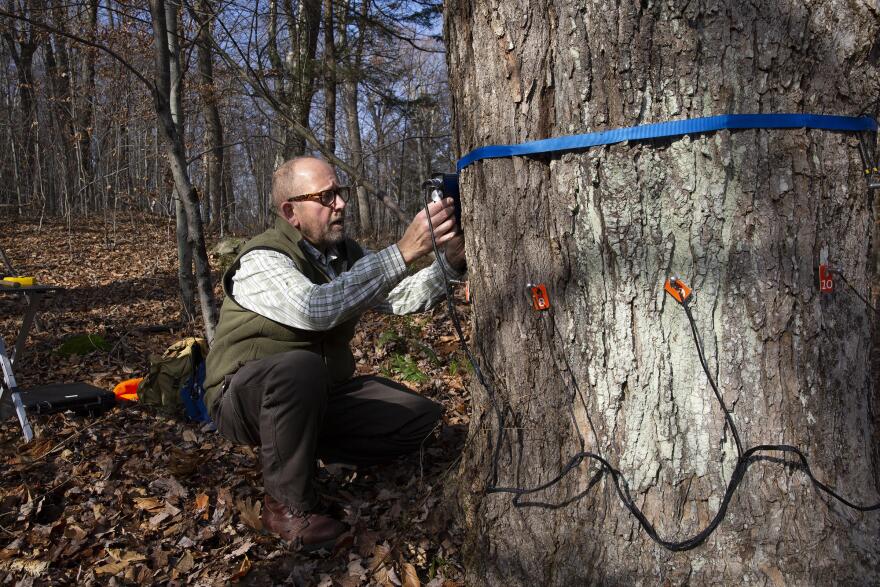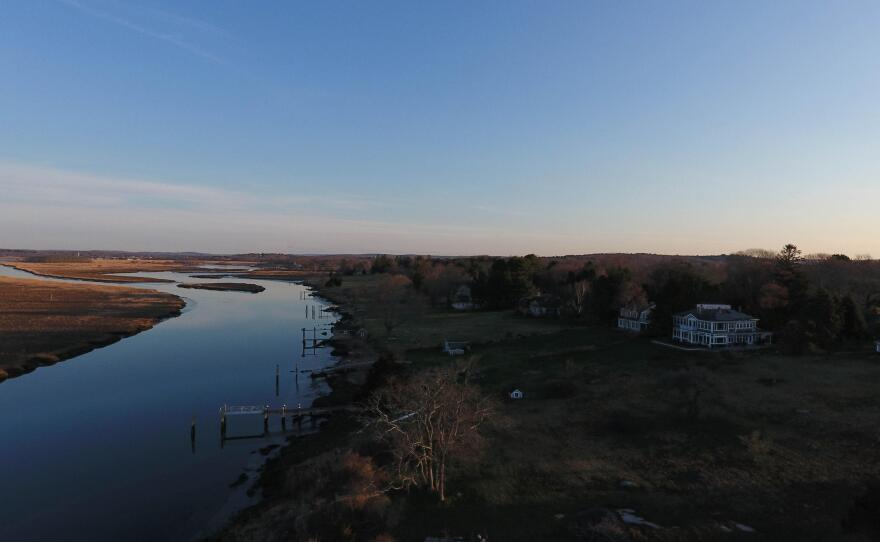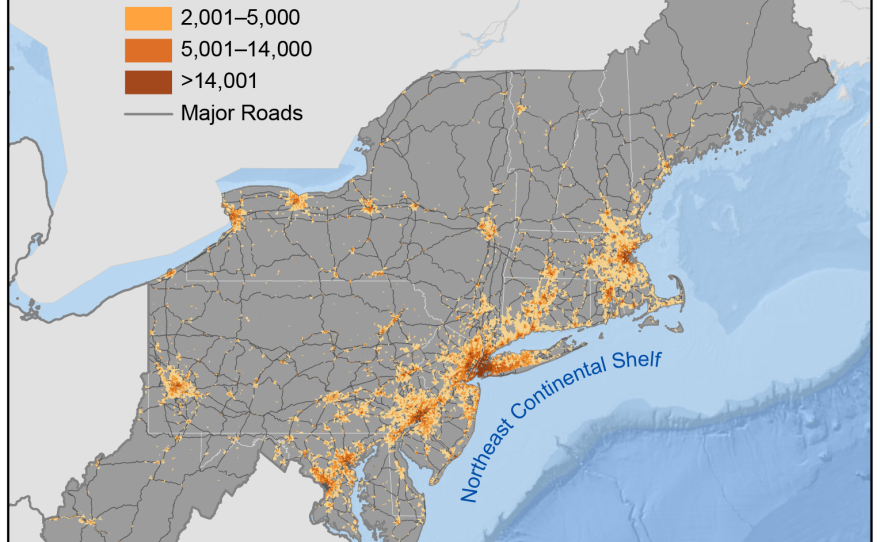Climate change is expected to hit the Northeast pretty hard, affecting crops, ski resorts and fisheries on the coast. Here are some of our latest New England reports on climate change — from inland floods in New Hampshire, to a Connecticut forest, to a salt marsh north of Boston where there's an invasive plant that just won't quit.
The federal government recently released a lengthy climate assessment with a chapter focused on the Northeast. Our friends at WBUR put together a few New England takeaways you should know.
First, climate change is affecting our health, bringing warmer temperatures that are actually rising faster in the Northeast than elsewhere in the continental U.S. That can mean more deaths from extreme heat, plus more troubles with ticks, asthma and allergies.
Warmer seasons will spell some trouble for some businesses — from fruit farmers to ski resorts. On the flip side, the changes could be a boon to some growers, and they'll see a longer growing season.
And the report says fisheries will be affected by climate change, as Northeast ocean temperatures are rising 3 times faster than the global average. That means there will be fewer of some species, like northern shrimp, surf clams and Atlantic cod. Other species will increase, like black sea bass.
And lastly — the report says there's going to be more flooding everywhere in New England, with storm surges on the coast, and occasional extremely heavy rainfall and floods inland.

Jennifer Jacobs is a professor of civil and environmental engineering at the University of New Hampshire, and she's a lead author of a chapter in the federal climate change report. Here she talks with New Hampshire Public Radio's Rick Ganley about what's in store for the Granite State.
There's no single kind of scientist working on climate change — as Jacobs points out, there are many different kinds of experts working on solutions. And they're coming up with new questions and problems to solve. That's what's been happening in Connecticut, where scientists are looking at how to measure trees' storage of carbon.
It's an important question because some polluters — depending on local laws — are able to offset their own carbon emissions by purchasing what are known as carbon credits. Connecticut Public Radio's Patrick Skahill reports on why good measurement tools can help us make sure those offsets make sense.

One more note on trees and climate change — there's a report out from the journal Global Change Biology that says northeastern sugar maple trees are projected to grow about 40 percent slower in New England. That's because warmer temperatures in the region means shrinking snow pack, and maple trees need that deep snow to insulate their shallow roots. So not only is the maple syrup industry affected, but so is the carbon storage our forests help to manage — nationwide, it's between 5 and 30 percent of carbon dioxide emissions.
And we turn to an invasive plant at the top of Massachusetts ecologists' most-wanted list. It's a tall, bushy-topped reed called phragmites. State, federal and private groups spend tens of thousands of dollars each year trying to control it. But emerging research shows that phragmites may play a more complicated role in climate change than previously realized. WBUR's Barbara Moran has the story.
Thanks for reading and/or listening. Keep up here with all our News Now episodes.










